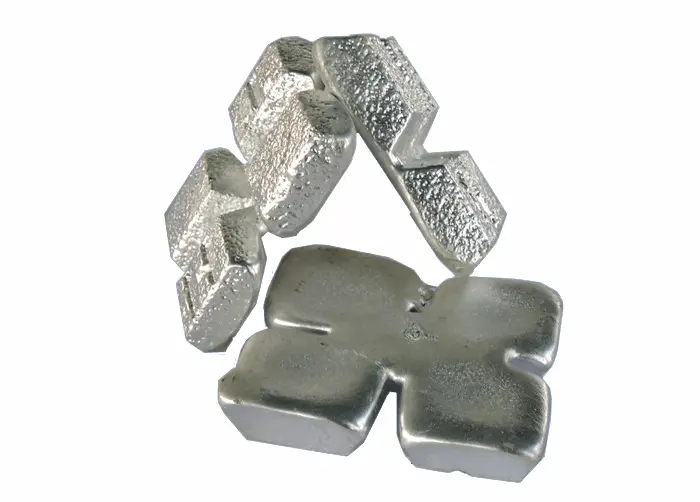With the global demand for sustainable transportation increasing, the electric vehicle (EV) market is experiencing rapid growth. In this context, aluminum master alloys are gaining attention due to their lightweight and excellent electrical conductivity. This blog will explore the applications of aluminum master alloys in battery manufacturing and their benefits, as well as how companies are innovating in this field.
Advantages of Aluminum Master Alloys
Lightweight Characteristics
The lightweight nature of aluminum master alloys provides a significant advantage in the manufacturing of electric vehicle batteries. The overall weight of an EV directly affects its range and energy efficiency; using aluminum master alloys can effectively reduce the weight of the battery, thereby enhancing the vehicle’s performance and efficiency.
Excellent Electrical Conductivity
Aluminum master alloys possess good electrical conductivity, which can improve the charging and discharging efficiency of batteries. This characteristic allows electric vehicles to respond more quickly during acceleration and braking, offering a better driving experience. Additionally, excellent conductivity helps extend the lifespan of the battery.
Applications of Aluminum Master Alloys in Battery Manufacturing
Used in Battery Integration Structures
Aluminum master alloys are commonly used in the integrated structures of batteries. Their lightweight and high-strength properties allow for more flexible designs of battery packs, catering to various vehicle requirements. Furthermore, the corrosion resistance of aluminum master alloys enhances the durability of batteries, making them suitable for different environmental conditions.
Enhancing Battery Performance
By incorporating aluminum master alloys in the manufacturing process, significant improvements in battery performance can be achieved. For instance, the application of aluminum master alloys in battery electrode materials helps increase energy density and cycle life. This results in notable enhancements in the range and charging efficiency of electric vehicles.
Innovations and Developments in the Industry
Technological Innovations by Companies
Many companies are actively exploring new applications of aluminum master alloys in battery manufacturing. By developing new alloy formulations and optimizing production processes, these companies not only enhance product performance but also reduce manufacturing costs. For example, some firms are researching ways to combine aluminum master alloys with other materials to further improve overall battery performance.
Promoting Sustainable Development
In the context of sustainable development, the recycling of aluminum master alloys has become an important topic. Many manufacturers are committed to developing recyclable aluminum master alloy materials to minimize environmental impact. This sustainable production model not only meets environmental standards but also presents new business opportunities for companies.
Conclusion
The application of aluminum master alloys in electric vehicle battery manufacturing is gradually becoming a significant trend in industry development. Their lightweight and excellent conductivity not only enhance battery performance and lifespan but also promote the sustainable development of the electric vehicle industry. With continuous technological innovations, aluminum master alloys are poised to play an even greater role in the future of electric vehicle battery manufacturing.


